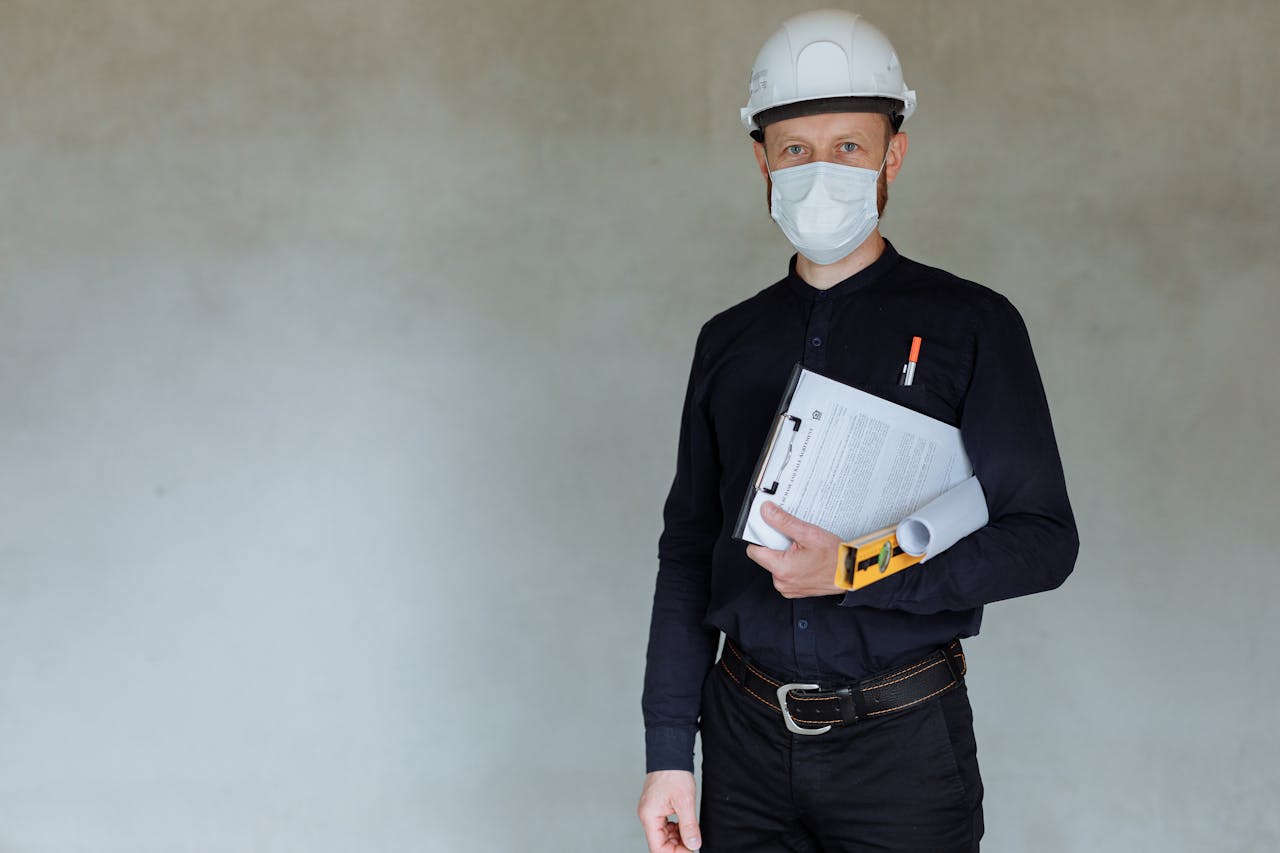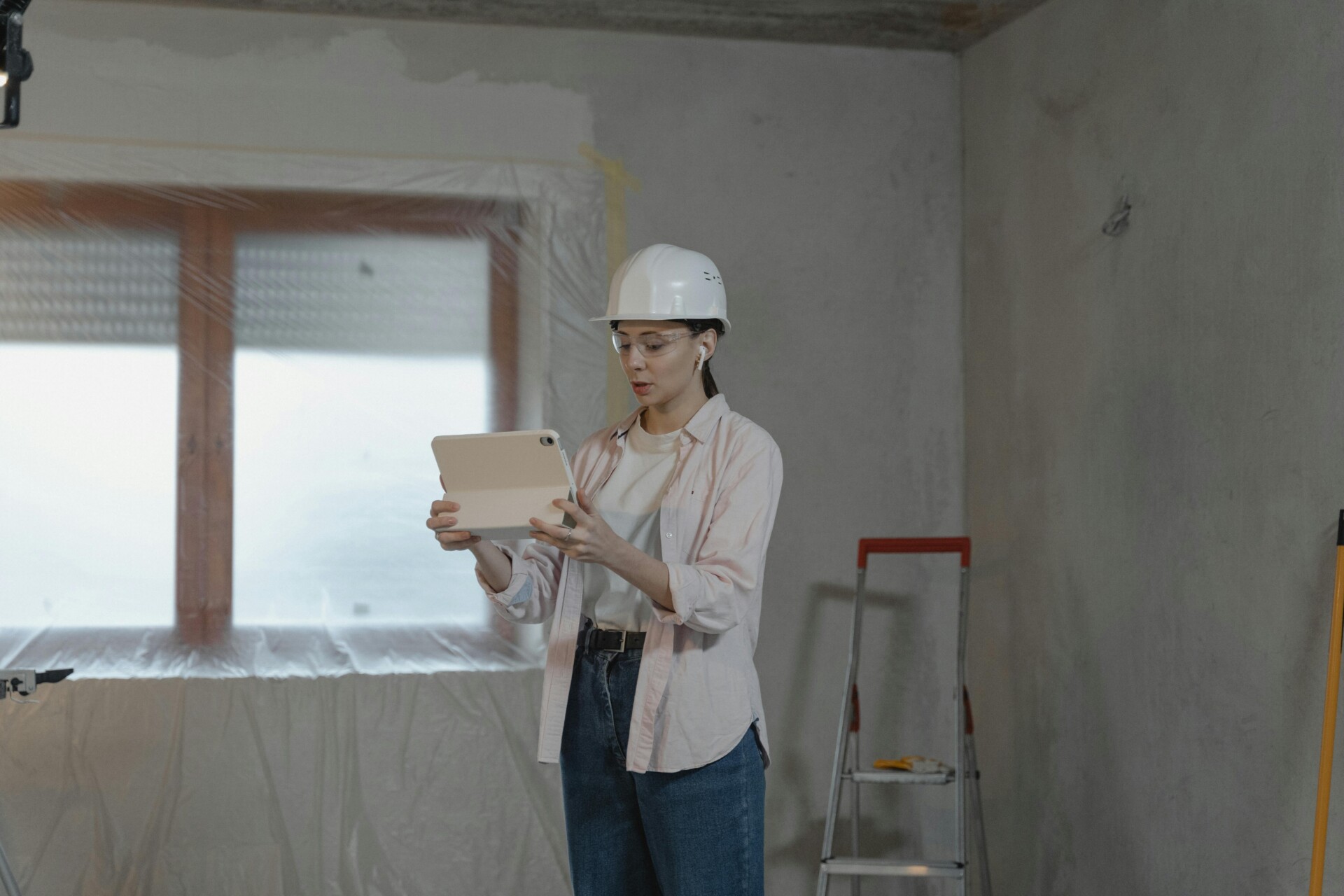Construction approvals in Dallas require obtaining permits before breaking ground, an often underestimated step that significantly impacts project timelines. Recent policy changes have streamlined some processes while creating new requirements, particularly the May 2024 mandate requiring all commercial applications to be submitted digitally through the city’s online portal.
The Dallas construction approval process operates through three distinct phases that property developers and owners must navigate successfully. Each phase involves specific requirements, documentation, and coordination with different city departments to ensure projects meet building codes, zoning compliance, and safety standards before construction can legally proceed to completion and occupancy.
Which Permits And Documents Are Required To Start In Dallas?

We coordinate three main permit categories for construction work in Dallas. Residential permits cover single-family homes, duplexes, and similar structures, while commercial permits address office buildings, retail spaces, industrial facilities, and multifamily developments. Trade permits handle specialized work including electrical, plumbing, mechanical systems, and irrigation installations.
Commercial projects frequently require additional approvals beyond the primary building permit. Demolition permits become necessary when removing existing structures or portions thereof. Sign permits govern exterior signage installations, while land-use and zoning approvals ensure project compliance with district regulations and overlay requirements.
Successful permit applications require two complete sets of construction plans submitted to the City of Dallas Building Inspection Department. When structural work involves load-bearing modifications, foundation changes, or significant alterations, Texas state law mandates sealed drawings from licensed engineers or architects. We coordinate these professional seals during our design development phase to avoid submission delays.
Standard documentation packages include architectural and engineering drawings that detail existing conditions and proposed modifications. Site plans must show property boundaries, setbacks, utilities, drainage patterns, and parking layouts. Structural calculations accompany any work affecting building stability or load distribution paths.
Energy compliance documentation has become increasingly important for both residential and commercial projects. The City requires energy efficiency reports demonstrating adherence to current building energy codes. Fire and life safety plans detail egress routes, sprinkler coverage, alarm systems, and rated assemblies for commercial work.
Accessibility documentation ensures compliance with Americans with Disabilities Act requirements. We prepare detailed drawings showing accessible routes, ramps, door widths, restroom configurations, and parking designations. Contractor licensing information and property owner contact details complete the standard submittal package.
Minor construction activities receive exemptions from permit requirements within specific parameters. Small accessory structures under 200 square feet without utility connections avoid permit requirements. Nonstructural interior work in single-family and duplex homes that doesn’t increase floor area or change exterior openings also qualifies for exemption.
These exemptions carry important limitations that require verification with the Building Inspection Department before beginning work. Historic districts, conservation areas, and planned development districts may impose additional restrictions that override standard exemptions. We always confirm exempt status during our initial project assessments to prevent compliance issues during construction.
How Do You Prepare And Submit An Application (City Vs. Unincorporated Areas)?
The jurisdiction determines both where we submit applications and which approval pathway the project follows. Within Dallas city limits, we navigate one set of requirements, while properties in unincorporated Dallas County operate under a different framework entirely.
City Of Dallas Application Process
We submit applications through the DallasNow online portal or visit the Oak Cliff Municipal Center at 320 E. Jefferson Boulevard for in-person assistance. As of May 2024, all commercial applications must be submitted electronically through the online system. The City’s self-service stations provide support for applicants who prefer in-person guidance while still utilizing the digital platform.
Before submitting, we often schedule zoning consultations to clarify district regulations, land-use provisions, and permitting requirements. The City offers basic 20-minute consultations at no cost, while enhanced hour-long sessions cost $100. These consultations help us understand setback requirements, allowable uses, and potential complications before investing time in detailed plans.
Complete applications include two sets of plans, sealed drawings when structural work is involved, and all supporting documentation. We coordinate with licensed professionals early to ensure structural calculations, MEP designs, and accessibility compliance documents are ready for submission. Payment processing occurs online through the portal, with fees calculated based on project scope and valuation.
Unincorporated Dallas County Requirements
Projects outside city limits fall under the Department of Unincorporated Area Services (DUAS), which coordinates approvals across multiple county departments. We submit applications through the MyGov portal at www.mgoconnect.org, creating accounts under the Dallas County Unincorporated jurisdiction. This process requires different documentation and follows distinct review protocols.
County approvals often involve additional steps beyond basic building permits. We coordinate addressing for new construction, secure floodplain management approvals when properties fall within designated zones, and navigate septic system reviews for projects without municipal sewer connections. Road access, utility connections, and public works coordination add layers to the approval process that don’t typically apply within city limits.
The Fire Marshal reviews all DUAS applications, and we coordinate with health department requirements for food service or other regulated uses. Subdivision and platting requirements apply when projects affect lot lines or create new parcels. Each department operates on its own timeline, so we factor these coordination requirements into project scheduling from the outset.
Post-Approval Requirements And Permit Validity
Once approved, permits must be posted conspicuously at the construction site. Both city and county permits remain valid for six months from issuance, though this timeline can vary based on project complexity and specific permit conditions. We monitor expiration dates closely and submit extension requests before permits lapse to avoid restarting the approval process.
Extension requests require justification for delays and may involve additional fees. Weather delays, material availability, or unforeseen site conditions often qualify for extensions, but we document these circumstances thoroughly. Some permits allow multiple extensions, while others have stricter renewal limitations that we clarify during initial submission.
We maintain permit documentation throughout construction and coordinate final inspections before the six-month validity period expires. Active construction progress typically supports extension requests, while dormant projects face more scrutiny during renewal processes.
How Does Plan Review Work, And What Timelines Or Expedited Options Apply?

Plan review timelines drive construction schedules directly. We coordinate with the City of Dallas when projects enter technical review knowing that residential permits typically complete first review within 1-3 business days, commercial remodels require approximately 12 business days, and new commercial construction extends beyond 20 business days for initial assessment.
Complex projects frequently stretch these baseline timelines to 4-6 weeks or longer. The City coordinates technical reviews simultaneously across multiple departments including structural engineering, mechanical systems, electrical installations, plumbing design, and fire safety protocols. We prepare comprehensive documentation packages anticipating this inter-departmental review process.
Multi-Department Technical Coordination
The City assigns projects to review teams that examine different technical aspects concurrently rather than sequentially. Zoning checks verify land use compliance while building code specialists examine structural calculations and life safety systems. Fire department reviewers focus on egress paths, sprinkler coverage, and alarm installations for commercial projects.
Each department operates independently during technical review, but their findings compile into unified comment letters. We coordinate with design teams to address structural, MEP, and fire safety comments comprehensively in each resubmittal cycle. Incomplete responses to any single department’s concerns can extend the entire review timeline.
Addressing Review Comments And Resubmittals
When city reviewers identify code compliance issues or documentation gaps, we work with architects and engineers to provide complete responses. The resubmittal process requires addressing every comment thoroughly rather than providing partial corrections that trigger additional review cycles.
We maintain detailed tracking systems for review comments across all disciplines. Our experience shows that comprehensive first-round responses to structural, zoning, and fire safety concerns prevent the revision loops that can add weeks to approval schedules. Projects requiring multiple incomplete resubmittals consistently exceed standard timeline projections.
Q-Team Expedited Review Process
Dallas offers the Q-Team expedited review for projects requiring compressed approval schedules. Application fees scale by project size, ranging from $250 for developments under 25,000 square feet to $750 for projects exceeding 50,000 square feet. The City also charges an hourly review fee of $1,000 during Q-Team sessions.
Q-Team sessions involve collaborative, in-person meetings with city reviewers and project teams. We bring architects, engineers, and other consultants with sealing authority to these sessions, enabling real-time plan revisions and issue resolution. When properly prepared, Q-Team reviews can result in same-day permit issuance.
The expedited process requires complete documentation before scheduling sessions. We coordinate appointments at least five business days in advance, with meetings available Tuesday through Thursday for full-day or half-day sessions. The investment in Q-Team fees often provides significant returns through accelerated construction starts.
We monitor the City’s Commercial Permits Activity Dashboard to track current processing queues and cycle times. This dashboard provides real-time visibility into permit volumes and median approval timelines by project type. Understanding current city workloads helps us set realistic expectations and plan submission strategies accordingly.
What Inspections Are Required Before Occupancy, And How Do You Schedule Them?
Construction projects in Dallas require a systematic inspection sequence that we coordinate at each critical building phase. These inspections ensure code compliance and safety standards are met before the Certificate of Occupancy can be issued.
Foundation Inspection Requirements
We schedule foundation inspections before concrete is poured, allowing city inspectors to examine footings, reinforcement placement, and drainage systems. Inspectors verify that foundation dimensions match approved plans and that steel reinforcement meets structural requirements. The inspection also confirms proper excavation depths and soil conditions meet engineering specifications.
Foundation work must pass this inspection before we can proceed with concrete placement. We coordinate closely with our concrete subcontractors to ensure all reinforcement and formwork is ready for the scheduled inspection time.
Framing Inspection Process
After structural framing is complete but before mechanical systems installation, we coordinate the framing inspection. City inspectors examine structural load paths, shear wall connections, and fire separation assemblies to verify compliance with approved plans. The inspection confirms that rough openings for windows and doors match specifications and that all structural connections meet code requirements.
We prepare our sites thoroughly for framing inspections, ensuring all structural elements are accessible and properly labeled. Any issues identified during this inspection must be corrected before we can proceed with MEP installations.
Mechanical, Electrical, And Plumbing Inspections
We schedule separate MEP inspections for HVAC, electrical, and plumbing systems before these installations are concealed behind walls or ceilings. Each system requires individual inspection approval from qualified city inspectors who verify proper installation according to current Dallas codes.
The mechanical inspection examines ductwork routing, equipment installation, and ventilation requirements. Electrical inspections focus on wiring methods, panel installations, and grounding systems. Plumbing inspections verify pipe sizing, fixture locations, and venting compliance. We coordinate these inspections sequentially to maintain construction momentum while ensuring each trade can address any required corrections.
Commercial Fire Safety Inspections
Commercial projects require specialized fire safety inspections that we coordinate with the Dallas Fire-Rescue Department. These inspections examine sprinkler systems, fire alarm installations, rated assemblies, and emergency egress routes. We often arrange preliminary inspections with our fire protection subcontractors to identify potential issues before the official city inspection.
Fire safety inspections are particularly detailed for commercial occupancies, with inspectors verifying proper fire alarm control panel programming, sprinkler head coverage, and emergency lighting systems. We maintain close coordination with fire marshal protocols throughout this process.
Final Occupancy Inspection
The final occupancy inspection represents the culmination of our inspection coordination efforts and must be successfully completed before the Certificate of Occupancy is issued. This comprehensive inspection examines the entire building for code compliance and verifies that all previous inspection issues have been properly addressed.
During the final inspection, city officials verify accessibility features, exit signage, site drainage, parking requirements, and overall compliance with approved plans. We conduct our own pre-inspection walkthrough to identify and correct any outstanding items before the official inspection. Only after passing this final inspection can the building be legally occupied.
Inspection Scheduling And Coordination
We handle all inspection scheduling on behalf of our clients through the city’s online portal or by calling the automated inspection line at 214-670-5313. Our project managers understand that inspection requests received by 7:00 AM are eligible for same-day scheduling, which we utilize when construction timelines require immediate turnaround.
We maintain detailed inspection schedules integrated with our overall project timelines, ensuring adequate preparation time before each inspection. Our field supervisors prepare comprehensive checklists and coordinate with subcontractors to ensure all work is complete and accessible for inspection. New energy-efficiency requirements have added additional HVAC and energy checkpoints for some projects, which we incorporate into our inspection planning from the project’s beginning.
Conclusion And Next Steps

The three-phase Dallas construction approval process demands systematic preparation and strategic execution from application through Certificate of Occupancy. We approach each project by assembling complete, code-compliant documentation packages that include architectural drawings, engineering calculations, and all required supporting materials before submission. This upfront investment in thoroughness prevents the revision cycles that extend timelines and increase project costs.
Strategic timing decisions can significantly impact project schedules. When deadlines are critical, we evaluate Q-Team expedited review options early in the planning process, weighing the $1,000 hourly fees against potential schedule compression benefits. We coordinate inspection scheduling at each construction milestone, submitting requests by 7:00 AM for same-day availability and maintaining all approved plans on-site throughout the review process.
The final occupancy inspection serves as the gateway to Certificate of Occupancy issuance, requiring careful coordination between all trades to address any outstanding items before the walkthrough. Early engagement with the Building Inspection Department and proactive documentation management ensure we maintain momentum through each approval phase while keeping both schedules and budgets aligned with project objectives.
Contact EB3 Construction to navigate your Dallas construction approvals efficiently.




